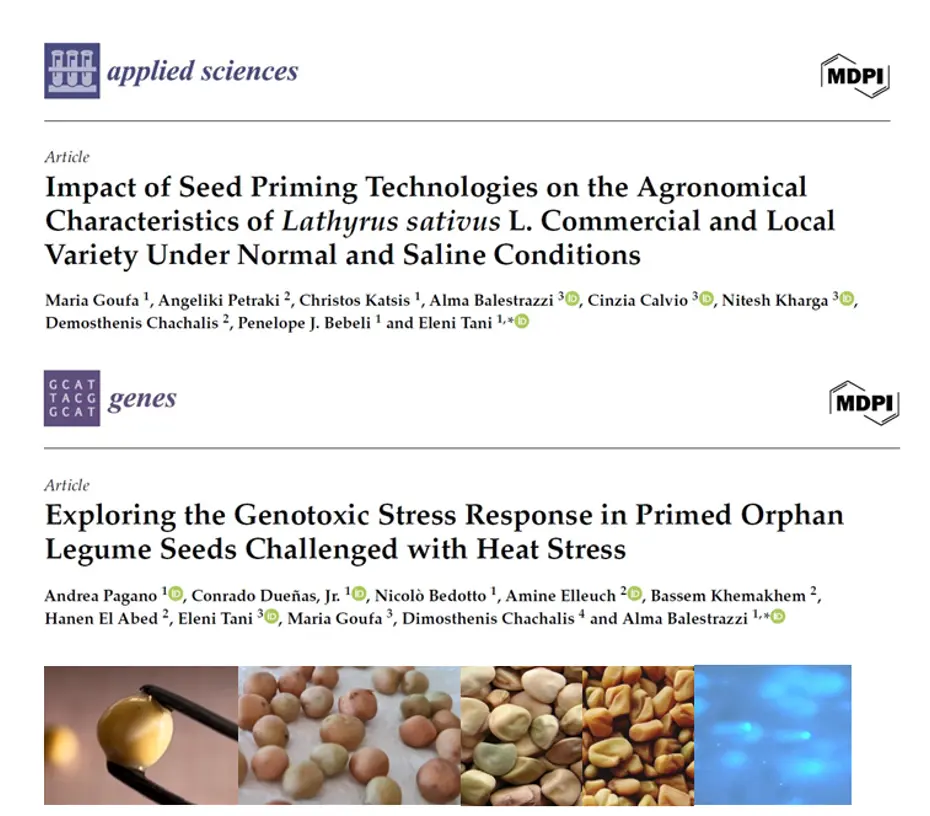Two papers have been recently published in the frame of BENEFIT-Med, highlighting the added value of seed priming applied to orphan legumes, challenged by environmental stress conditions. The work by Goufa et al. (Appl. Sci. 2025, 15, 1692. https://doi.org/10.3390/app15041692) reports on the efficacy of biopriming and combined hydro/biopriming treatments to enhance plant growth of the two grass pea genotypes, investigated in the project, under salinity stress. The study, resulting from the collaborative efforts of AUA, AG, BPI, and UNIPV Partners, contributes to expand the current state of the art concerning the potential of seed priming to boost stress resilience in grass pea. At the same time, genotype-specific profiles of salt stress tolerance were provided, as features useful for future breeding programs.
The work by Pagano et al. (Genes 2025, 16, 235. https://doi.org/10.3390/genes16020235) has investigated the response of orphan legumes (grass pea, trigonella, forage pea) to heat stress. Indeed, the combination of climate-resilient crop genotypes and tailored seed priming treatments might represent a reliable strategy to overcome the occurrence of extreme temperatures. This work explores the potential of hydropriming as a tool to mitigate the heat-stress-mediated impact on germination performance in orphan legumes. The study, resulting from the collaborative efforts of UNIPV, US, AUA, and BPI Partners addresses for the first time the issue of heat-mediated genotoxic damage, applying the comet assay technique to orphan legumes embryos.

